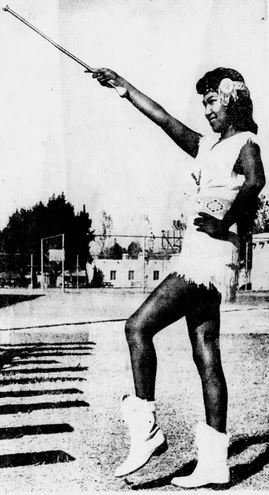Veronica Murdock facts for kids
Veronica Homer (1944 – March 5, 2024) was an important American leader. She was part of the Colorado River Indian Tribes, with both Shasta and Mohave family roots. Veronica Homer worked for her tribe's government, even serving as its vice chair. She also made history as the first woman president of the National Congress of American Indians (NCAI). Later, she worked for the United States government in the Bureau of Indian Affairs.
Contents
Early Life and Beginnings
Veronica L. Homer was born in 1944. Her mother, Alice, was from the California Shasta tribe. Her father, Pete Homer Sr., was Mohave. He was an actor and also led the Colorado River Indian Tribes for many years. Veronica grew up with seven brothers and sisters.
She went to Parker High School in Parker, Arizona. In 1961, while she was a student at Arizona State University, Veronica won the very first Miss Indian Arizona pageant. Because of her title, she was invited to be a leader for the Arizona Inter–Tribal Band. She marched with them in the parade for President John F. Kennedy's inauguration.
A Leader for Her People
Veronica Homer started working as the director of the Neighborhood Youth Corps for the Colorado River Indian Reservation. This program helped young people in her community. In 1969, she was elected as the vice chair of her tribe. She worked hard to improve life for her community. This included helping with health care, job training, and developing resources. Throughout the 1970s, she continued to serve on the Tribal Council.
National Leadership
In 1977, Veronica Homer was chosen to be the president of the National Congress of American Indians (NCAI). This was a big moment because she was the first woman to hold this important position. The NCAI works to protect the rights and interests of Native American tribes.
During her time as president, in 1978, the NCAI held a meeting about how Native American groups could get official recognition from the U.S. government. Veronica Homer believed it was important to follow the existing process. She also worried about new groups claiming Native American heritage without real ties. She wanted to make sure that Native American nations kept their traditional lands and their right to govern themselves.
In 1979, she led another important NCAI meeting. It focused on how tribes work with governments, laws, and ways to improve their economies and communities.
Working for the Government
In 1980, Veronica Homer began working for the Bureau of Indian Affairs (BIA). The BIA is a U.S. government agency that works with Native American tribes. She started as a Tribal Operations Specialist in Arizona. Later, she moved to Nevada and then to Washington, D.C., where she worked for the Assistant Secretary for Indian Affairs.
In 1994, she became the Superintendent of the Salt River Agency in Arizona. In this role, she helped serve several tribes, including the Fort McDowell Yavapai Nation and the Salt River Pima–Maricopa Indian Community.
Later Years and Legacy
Veronica Homer retired from government service in 2004. After retiring, she helped start an organization called Women Empowering Women for Indian Nations (WEWIN). She was a co-president of this group. WEWIN was created to encourage Native American women to become leaders and role models in their communities.
Veronica Homer passed away on March 5, 2024, at the age of 80. She is remembered for her dedication to her people and her important work in tribal and national leadership.
 | Frances Mary Albrier |
 | Whitney Young |
 | Muhammad Ali |



